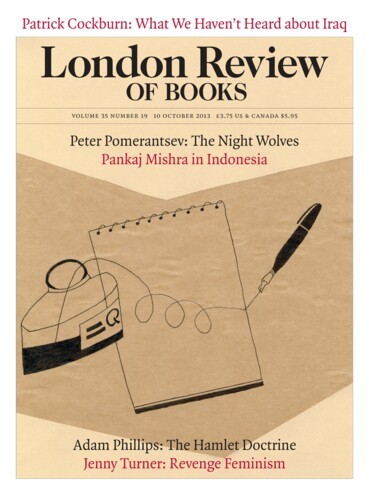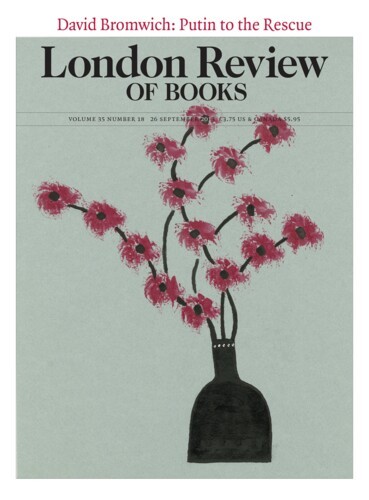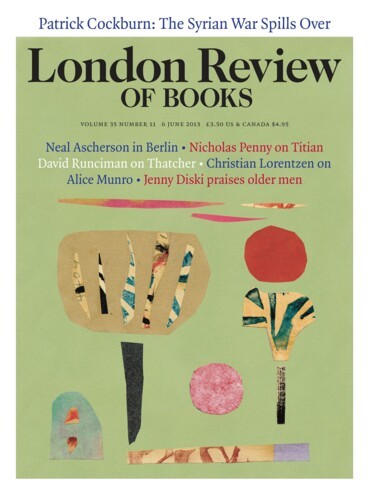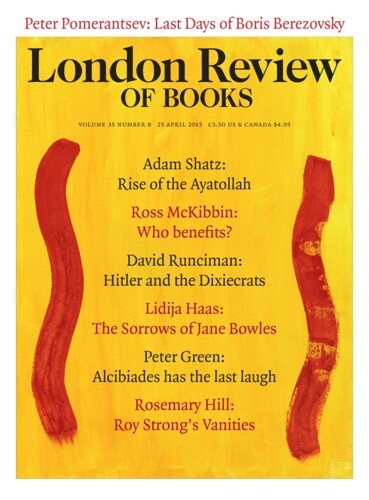Short Cuts: The Dirtiest Player Around
David Runciman, 10 October 2013
Dominic Lawson, writing in the Mail, thinks the way to understand Damian McBride’s relationship to Gordon Brown is by analogy with the Third Reich. McBride didn’t need to take direct orders from his boss because he already understood the violence that Brown wished on his enemies. The underling was working towards the Führer. Alastair Campbell, speaking on Andrew Neil’s




